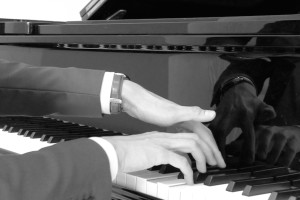One of the earliest memories I have in life, is that of me first learning how to play the piano at around age 3 or 4. Music has accompanied me my entire life, and even today, I still apply the lessons learned in music, to my career development. Here are 5 lessons from music on the success mindset, that I continue to apply.
1. Find mentors whom you greatly respect and admire
Noriko Ogawa is the world’s leading interpreter of Claude Debussy, having performed and recorded every single piece ever written by the famed French composer. When I was in Cambridge, I attended one of her recitals (where she performed Debussy’s 12 Etudes and Liszt’s Sonata) and was floored by her scrupulous attention to musical detail and lyrical phrasing. After the recital, I went up to her, and asked her point-blank if she was accepting new students. She was taken aback at first, but immediately realized that I was genuinely keen on learning from her. I spent the next 2 years regularly commuting to London to learn Debussy and Ravel from her. I wouldn’t have had the opportunity to study with her had I not made the ask. Today, I do the same in my professional career when I meet someone I truly respect – learn only from the best.
2. Practice, practice, practice
Finding a mentor isn’t enough. Malcolm Gladwell alludes to the 10,000 hours needed to achieve mastery, but it’s not just the number of hours put in, it’s the quality of those hours that matters as well. Getting the appropriate guidance and persistent practice allows one to achieve success in a much shorter time. I have probably practiced 30-50 hours for every hour of lesson that I’ve ever taken.
3. Surround yourself with awesome peers
Here in San Diego, I have been fortunate to call Brendan Nguyen, a very close friend of mine. Oberlin-trained Brendan is one of the most talented pianists I know, who is able to play anything from Beethoven to Boulez. Having peers like Brendan means I can share musical ideas with him, learn intricate techniques that I’ve never been exposed to, and get critical feedback. Through our years of friendship, my music has also grown in mastery and maturity.
4. Seek external validation
I make it a point to benchmark myself by seeking external validation. I have taken part in competitions, masterclasses, and music programs, primarily to gauge where my strengths and weaknesses are. Sometimes a rejection can be tough – although I’ve never been a finalist in a music competition, it provides perspective as to how I can improve. You can’t improve yourself if you don’t know what needs to be improved. However, success doesn’t have to be defined only by the number of awards – for me, getting an invitation to perform or premiere a work, counts too.
5. Challenge yourself
Finally, music has given me numerous opportunities to challenge myself. My mentors have always been instrumental in encouraging me to accept new challenges, and have supported me along the way. One of the craziest recitals I’ve ever given, is to perform all 4 Chopin Ballades sequentially. Each Ballade is equivalent to a mini-opera, each a complete and standalone work. Yet I persevered to first learn one, then two and three, and then 10 years after learning the first, I completed all four. Yet I know that as I celebrate a personal milestone with each successful performance, there will always be new challenges awaiting. Next up for me: I’m committing to complete Rachmaninov’s third piano concerto. What’s your challenge?
In summary, music has taught me that mentorship combined with tenacious practice will put you on the track for success. Seek validation for the results that you generate and then continue to challenge yourself by setting achievable goals. I attribute a lot of my success mindset to the decades of training I had (and still do) in music.
